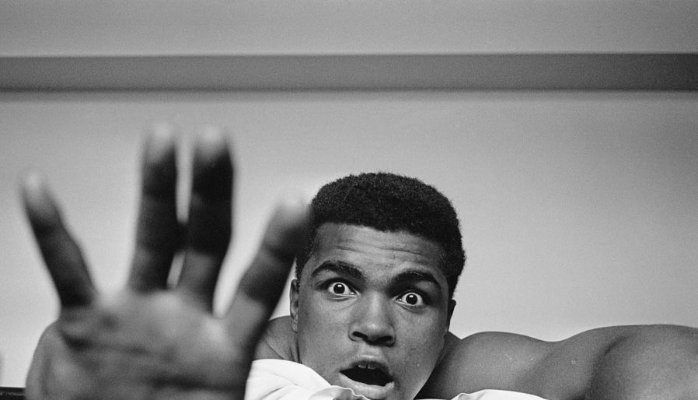A management column in the Wall Street Journal appeared under the appealing headline, “The Best Bosses Are Humble Bosses.” The article reported that humble leaders “inspire close teamwork, rapid learning and high performance in their teams.” It even reported that one HR consulting firm is planning to introduce an assessment to identify personality traits that include “sincerity, modesty, fairness, truthfulness, and unpretentiousness,” inspired in part by what two psychology professors call the H Factor (“a combination of honesty and humility.”)
This celebration of humility sounds great, and it is, but it flies in the face of daily headlines in the Journal and the realities of our business and political cultures. Exactly no one would use the word “humble” to describe the current occupant of 1600 Pennsylvania Avenue. Tesla CEO Elon Musk may be the most visible, influential, high-impact leader in Silicon Valley, yet it’s hard to imagine anyone with less “modesty” or “unpretentiousness.” In sports, Jerry Jones, the brash owner of the Dallas Cowboys, the world’s most valuable athletic franchise, never misses an opportunity to talk a big game, even though his team has not won a big game in decades.
All of which raises an obvious question: If humility is so important, why are so many leaders today, especially our most famous leaders, so arrogant? Or, to flip the question around: In the face of so much evidence that humble leaders do, in fact, outperform arrogant leaders, why is it so hard for leaders at every level to check their egos at the office door?
With all due modesty, I’d offer a few answers to these vexing questions. For one thing, too many leaders think they can’t be humble and ambitious at the same time. One of the great benefits of becoming CEO of a company, head of a business unit, or leader of a team, the prevailing logic goes, is that you’re finally in charge of making things happen and delivering results. Edgar Schein, professor emeritus at MIT Sloan School of Management, and an expert on leadership and culture, once asked a group of his students what it means to be promoted to the rank of manager. “They said without hesitation, ‘It means I can now tell others what to do.’” Those are the roots of the know-it-all style of leadership. “Deep down, many of us believe that if you are not winning, you are losing,” Schein warns. The “tacit assumption” among executives “is that life is fundamentally and always a competition” — between companies, but also between individuals within companies. That’s not exactly a mindset that recognizes the virtues of humility.
In reality, of course, humility and ambition need not be at odds. Indeed, humility in the service of ambition is the most effective and sustainable mindset for leaders who aspire to do big things in a world filled with huge unknowns. Years ago, a group of HR professionals at IBM embraced a term to capture this mindset. The most effective leaders, they argued, exuded a sense of “humbition,” which they defined as “one part humility and one part ambition.” We “notice that by far the lion’s share of world-changing luminaries are humble people,” they wrote. “They focus on the work, not themselves. They seek success — they are ambitious — but they are humbled when it arrives…They feel lucky, not all-powerful.”
There’s another big reason why it’s so hard for leaders to be humble, and it’s related to the first. Humility can feel soft at a time when problems are hard; it can make leaders appear vulnerable when people are looking for answers and reassurances. Of course, that’s precisely its virtue: The most effective business leaders don’t pretend to have all the answers; the world is just too complicated for that. They understand that their job is to get the best ideas from the right people, whomever and wherever those people may be.
Here too, Edgar Schein offers helpful insights. In a lovely book called Humble Inquiry, in which he explores “the gentle art of asking instead of telling,” Schein identifies three different forms of humility. The first, “the humility that we feel around elders and dignitaries,” is a basic part of social life. The second, “the humility that we feel in the presence of those who awe us with their achievements,” is a standard part of professional life. It’s the third form of humility, which he calls “here-and-now humility,” that is the most rarely observed in business, and the most relevant for leaders who truly want to achieve big things.
What is here-and-now humility? It’s “how I feel when I am dependent on you,” Schein explains. “My status is inferior to yours at this moment because you know something or can do something that I need in order to accomplish some task or goal… I have to be humble because I am temporarily dependent on you. [But] I also have a choice. I can either not commit to tasks that make me dependent on others, or I can deny the dependency, avoid feeling humble, fail to get what I need, and, thereby, fail to accomplish the task or unwittingly sabotage it. Unfortunately people often would rather fail than to admit their dependence on someone else.”
We live in a world where ego gets attention but modesty gets results. Where arrogance makes headlines but humility makes a difference. Which means that all of us, as leaders or aspiring leaders, face questions of our own: Are we confident enough to stay humble? Are we strong enough to admit we don’t have all the answers? Here’s hoping we reach the right answers.










